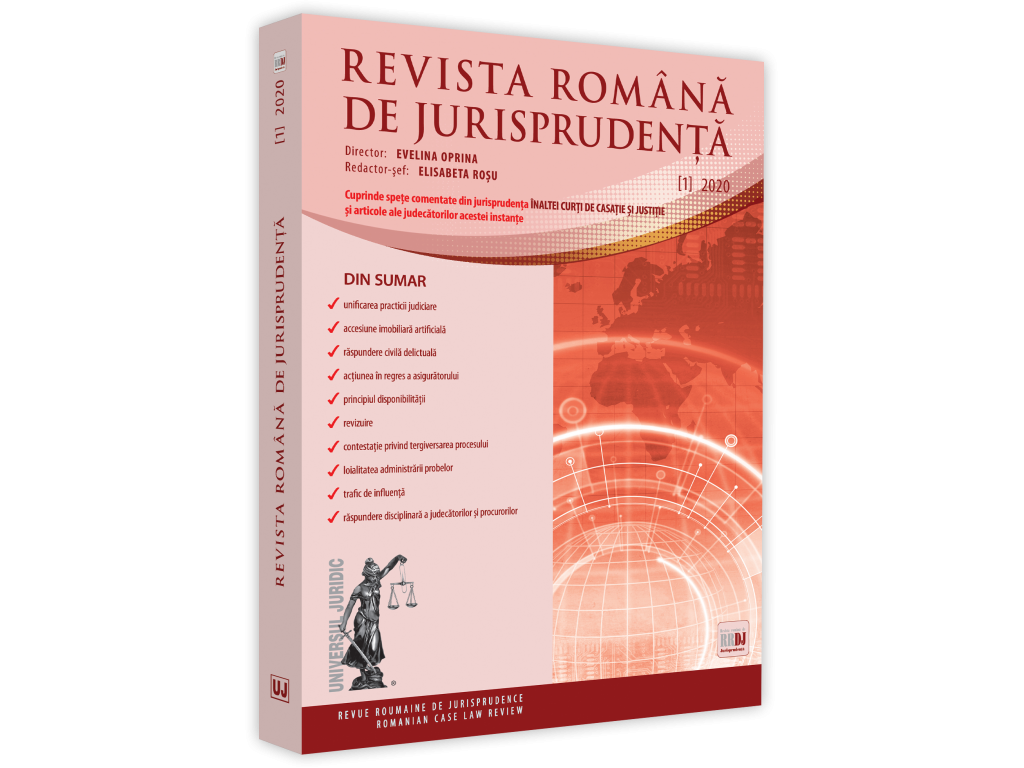Principle of impartiality of the court in the light of the powers attributable to the Judiciary Inspection and Superior Council of Magistracy in the matter of disciplinary liability of judges
JURISPRUDENŢĂ ÎN MATERIE DISCIPLINARĂ
Abstract
The circumstance that, in our system of law, the Judiciary Inspection has the power to exercise the disciplinary action against judges, and the Superior Council of Magistracy has the power to settle the disciplinary action, does not objectively substantiate a de plano impartiality to all judges in the disputes in which the Judiciary Inspection and the Superior Council of Magistracy act as party. Constitutional, legislative and infra-legislative - domestic law - provides the guarantees necessary for the observance of the principles related to the independence and impartiality of the court. Our system of law does not contain any of the elements outlining the consideration of the ECHR in the case Volkov v Ukraine in terms of breach of the principles related to the independence and impartiality of the court, respectively: (i) the fact that most members of the disciplinary court – the Superior Council of Justice of Ukraine were non-judicial staff (items 109-111 of the decision delivered by the ECHR); (ii) the rightful participation of the general prosecutor in the composition of the Superior Council of Justice of Ukraine, which conducted the disciplinary procedure against a judge (item 114 of the decision delivered by the ECHR); (iii) the members of the Superior Council of Justice of Ukraine had previously filed claims for removal from office of the judge investigated in disciplinary terms (item 115 of the decision delivered by the ECHR); (iv) the personal preferences of certain members of the disciplinary court (item 116 of the decision delivered by the ECHR); (v) the subsequent examination of the case by a legislative body, which reflects the politicization of the procedure and the exacerbation of the inconsistency of this procedure with the principle of separation of the powers (item 118 of the decision delivered by the ECHR); (vi) the impossibility of the High Administrative Court of Ukraine, which reexamined the case, of quashing the decisions of the disciplinary court and the absence of certain regulations regarding the conduct of the disciplinary procedure (item 125 of the decision delivered by the ECHR); (vii) the judicial review performed by the judges who were also under the jurisdiction of the disciplinary court and could also be subject to certain similar disciplinary procedures, devoid of the guarantee of independence and impartiality of the council for the hereinabove mentioned grounds (item 130 of the decision delivered by the ECHR).








